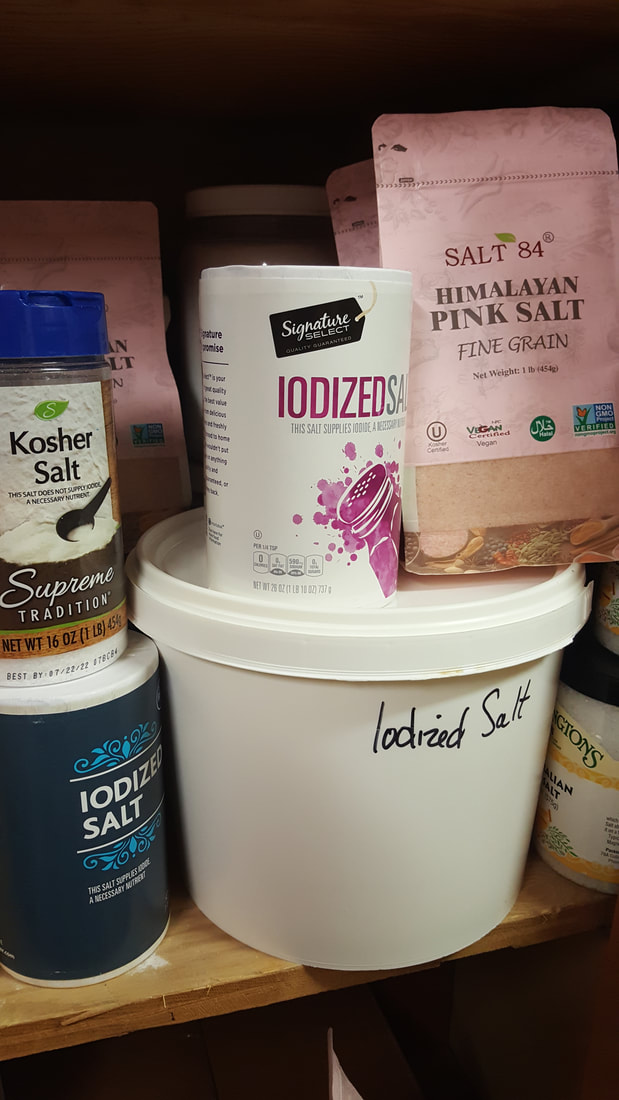
The basic year’s supply includes a recommended supply of 8 pounds of salt and 60 pounds of sugar per person. (“Sugar” here means any kind- granulated, brown, powdered, maple syrup, honey, molasses, corn syrup, sweetened gelatin mixes, jams, jellies, syrups, etc.) In a day when we’re constantly reminded to eat less sugar and salt, why is storing so much of each recommended?
For multiple reasons. The first is for cooking; both make things taste better. Both sugar and salt can be used to preserve food. Sugar is used in canning fruits and making jams, jellies, and syrups. In addition to this, they can be stored indefinitely without spoiling, and being able to have them in high-stress situations has a both a physical and a psychological affect. They’re also very affordable. Your year’s supply of salt can cost less than $5, and 60 lbs of sugar starts at less than $20 if you hit the right sales.
But isn’t that a whole lot of sugar?
Yes and no. It’s a lot of sugar! – but considerably less than the average American eats each year. The most reliable numbers I found – published in July 2019 by the USDA— indicates we consume an average of 73 pounds per year. (To get this number, combine data from Tables 51, 52, and 53). 60 pounds will fit in two 5-gallon buckets, and will allow for up to 1/3 cup per day. Store any kind of sugar you'll want to use. I store pretty much all of them.
Last week I posted a link to the Wooden Spoon Cooking School info and and recipes; the same one is useful this week. It's on oats, honey, and sugar. It includes information and recipes for cooking with honey, as well as for using molasses-- including a simple recipe for Baked Beans. Page 14 has instructions for replacing table sugar with honey in recipes, and the reverse.
Salt is important for basic body functions, which is why it’s an ingredient in liquid electrolytes. (See here for how to make your own.)
Salt is an amazing preservative. It’s used to make brine to preserve or pickle, used dry on meats to cure them, and used along with dehydrating to preserve meats. It’s also useful for saline rinses for stuffy noses, and a good brine makes the best roast turkey of all.
Because of all this, I store extra salt. It’s cheap, takes little space, and is endlessly useful.
 RSS Feed
RSS Feed